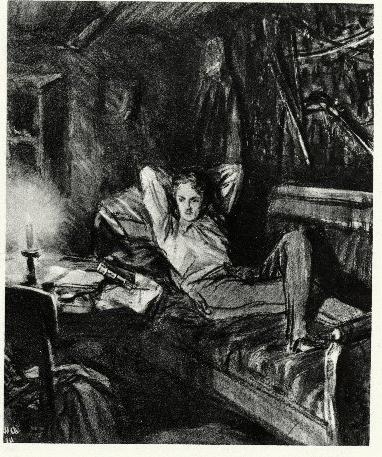The image of Pechorin, portrayed by Mikhail Lermontov, is, first of all, the personality of a young man who suffers from his restlessness and is constantly captive with questions: “Why did I live? Why was I born? ”
What is the hero of the XIX century?
Pechorin is not at all like his peers; there is not a drop of desire in him to move along the beaten path of secular youth of that time. The young officer serves, but does not seek to curry favor. He is not interested in music, philosophy, does not want to go into the intricacies of studying the military craft. But it immediately becomes clear to the reader that the image of Pechorin is an image of a person who is a cut above the people around him. He is quite quick-witted, educated and talented, characterized by energy and courage. Nevertheless, Pechorin’s indifference to other people, the selfishness of his nature, the inability to empathize, friendship and love repels. Pechorin’s contradictory image is complemented by his other qualities: a desire to live at full strength, the ability to critically evaluate his actions, and striving for the best. The "pity of actions" of the character, the senseless waste of strength, his actions that hurt others - all this puts the hero in a bad light. However, at the same time, the officer himself is experiencing deep suffering.
The complexity and inconsistency of the protagonist of the famous novel is especially clearly represented by his words that two people live in it at the same time: one of them lives in the full sense of the word, and the second thinks and judges the actions of the first. It also tells about the reasons that laid the foundation for this “split”: “I told the truth - they didn’t believe me: I started to deceive ...” In just a couple of years, a young and hopeful young man turned into a callous, vindictive, gall and ambitious person; as he put it, “a moral cripple.” The image of Pechorin in the novel “A Hero of Our Time” echoes the image of Onegin created by A. Pushkin: this is a “selfish will”, frustrated in life, prone to pessimism, experiencing constant internal conflict.
Socio-political situation of the 30s. XIX century did not allow Pechorin to find and reveal himself. He repeatedly makes attempts to forget about small adventures, love, exposes himself to the bullets of the Chechens ... However, all this does not bring him the desired relief and remains only an attempt to escape.
Nevertheless, the image of Pechorin is an image of a richly gifted nature. After all, he has a sharp analytical mind, he unusually accurately assesses the people and the actions that they perform. His critical attitude was formed not only in relation to others, but also in relation to himself. In his diary, the officer exposes himself: a hot heart beats in his chest that knows how to feel deeply (Bela’s death, meeting with Vera) and is extremely upset, although it is hiding under the mask of indifference. However, this indifference is no more than self-defense.
The “hero of our time”, the image of Pechorin in which is the basis of the narrative, allows you to see the same person from completely different sides, to look into different corners of her soul. At the same time with all of the above in the guise of an officer, we see a strong-willed, strong and active person in whom “vital forces” are slumbering. He is ready to act. Unfortunately, almost all of his actions ultimately hurt both Pechorin himself and others, his activity is not constructive, but destructive.

The image of Pechorin strongly echoes Lermontov’s “Demon”, especially at the beginning of the novel, when the hero remains something demonic, unsolved. By the will of fate, a young man becomes a destroyer of other people's lives: it is he who is guilty of Bela’s death, of Maxim Maksimovich’s final disappointment in friendship, of how much Vera and Mary suffered. At the hands of Pechorin, in turn, Grushnitsky dies. Pechorin played a role in how another young officer, Vulich, died, and in how “honest smugglers” were forced to leave their homes.
Conclusion
Pechorin is a man who has no past and has only hope for something better in the future. In the present, he remains a perfect ghost - that is how Belinsky described this contradictory image.